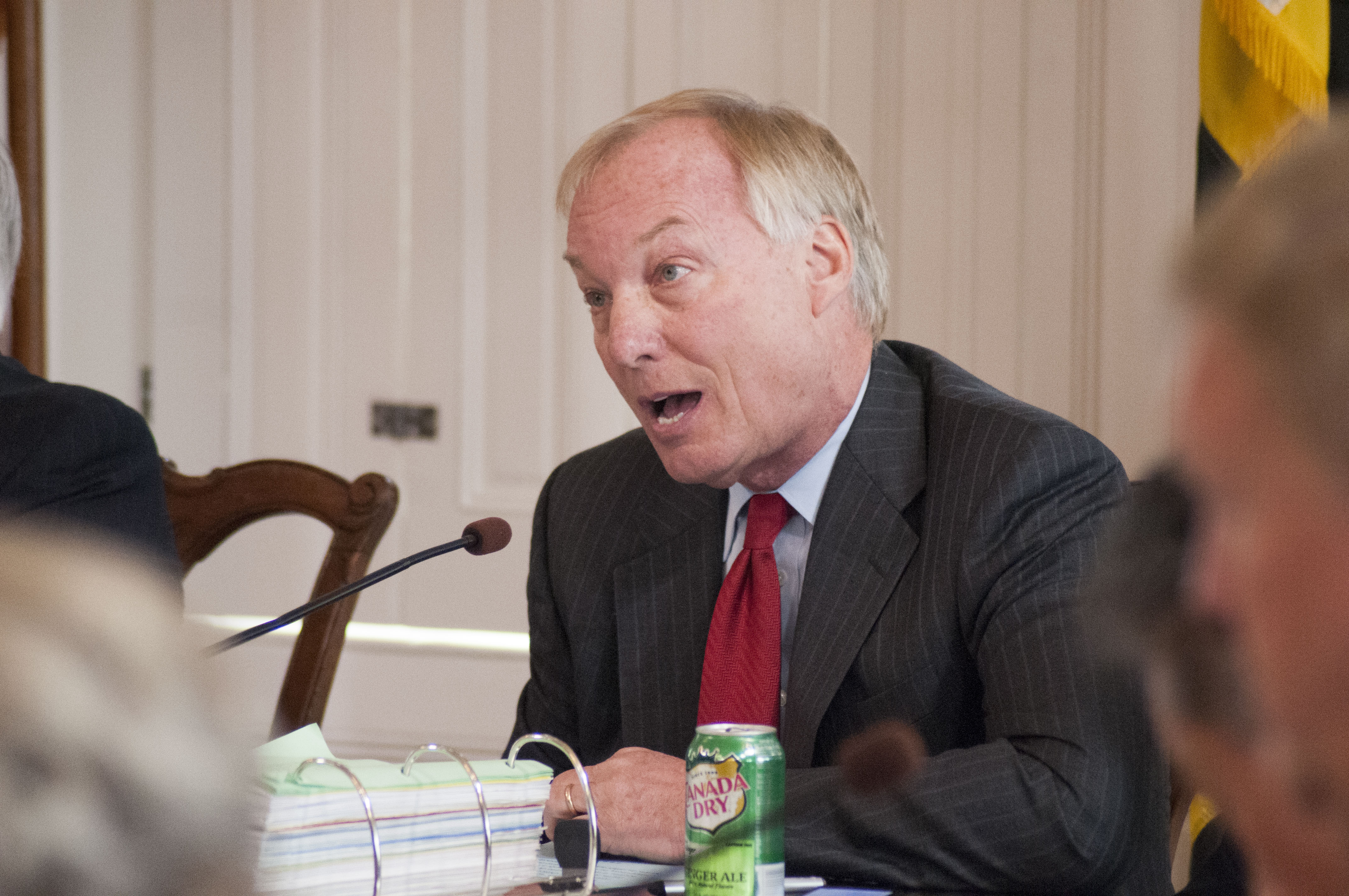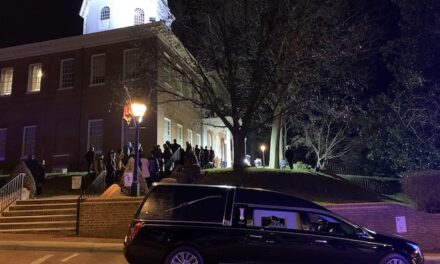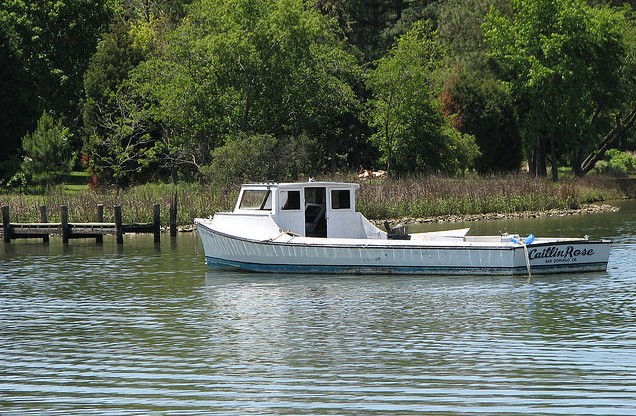By Len Lazarick
Len@MarylandReporter.com
A new $87 million computer system has nearly paid for itself in tracking down delinquent taxpayers, says Democratic Comptroller Peter Franchot. But Republican challenger William Campbell says the Maryland Integrated Tax System is destined to cost almost three times as much – a claim a Franchot aide called untrue — and also raises privacy concerns as it interfaces with other state databases.
This is just one of the issues you’ve never heard about in the mild-mannered and nearly invisible race for state comptroller.
Franchot is proud of his four years as chief tax collector and fiscal hawk on the Board of Public Works. But he said “we’ve got some big problems” with revenues down and record unemployment, and the state needs to “hold the line” on spending and debt.
Campbell insists it’s much worse than that.
“We’re in deep trouble. We’re on the brink of a financial collapse,” he said. “We really have to cut spending.”
“This is fixable,” said Campbell. “It won’t be fixable four years from now.”
The candidates sparred from a distance Friday in front of the Maryland Municipal League, made up of the mayors and council members from the state’s 153 municipalities. In keeping with past practice, the league didn’t let the candidates in the room at the same time.
It’s not as if the candidates would come to blows, aside from Campbell throwing a few verbal jabs. Franchot even went out of his way to compliment the former chief financial officer of the U.S. Coast Guard and the U.S. Department of Veterans Affairs. “He’s civil, he’s smart, he sticks to the issues,” the comptroller said.
Now a consultant, Campbell’s last high-level executive job was the two years he spent as the CFO at Amtrak, which he admitted was not a complete success. “I didn’t fix Amtrak, but I made it a lot better,” he said.
Campbell noted that the comptroller has 18 different statutory jobs, and some of them needed to be pursued more aggressively.
He praised Franchot for voting against the contract to purchase slot machines – high tech video lottery terminals at the new casinos – at $50,000 a piece, but said the comptroller should audit that contract, since other states were purchasing similar machines for as little as $10,000 to $14,000. (Auditing is not generally one of the comptroller’s jobs. Other than internal auditors in departments, most state audit functions fall to the Office of Legislative Audits.)
Campbell also said Franchot should audit the $215 million in contracts he voted for that started the first phase of the $1.5 billion public-private redevelopment partnership at State Center, near the state office complex in West Baltimore. Campbell, as well as members of Baltimore’s real estate community, complain about the $34 per-square-foot rent the state has guaranteed – a price $4 per foot higher than any rent the state currently pays.
Campbell also said Franchot has not been active enough in his role as vice chairman of the state employee retirement and pension system in getting the state to confront the $33 billion in unfunded liabilities for teacher and employee pensions, plus health insurance for retirees.
Both men told the mayors and council members that the 95% cut of highway user revenues — done in the latest budget — should be restored as soon as possible, especially because it can be an economic development measure.
“The slashing of highway user revenue is not spending reform,” Franchot said. “The shift has dire consequences. It’s bad fiscal policy,” leading to deferred maintenance of local roads, which is “bad for business” and “sends exactly the wrong message to potential employers.”
Both Gov. Martin O’Malley and ex-Gov. Bob Ehrlich have promised to restore at least some of the highway funds as quickly as possible.
Franchot said on the Board of Public Works he would continue to vote against “questionable land sales” of open property never likely to be developed. He also decried “bailing out Rocky Gap” — the money-losing hotel resort financed by taxpayers in a state park near Cumberland — “for the 19th time.”
“You’ve got to stop putting on government training wheels for failed businesses,” Franchot said.
Neither candidate advocated tax increases as a way to shore up the state’s finances.
Franchot told the municipal leaders that all extra money the state collects should be put in the reserve account, and there should be “no new or increased taxes.”
Campbell said Maryland needs to reduce its cost of doing business, and prepare for a cutback in federal defense contracting.
But he did not tell the municipal league about the tax-cutting proposals on his campaign website. These include eliminating the corporate income tax and inventory taxes, and reducing business fees. He also calls for cutting the sales tax from 6% to 5% or even 4%.
Because they were not debating face-to-face, Franchot had no opportunity to respond to Campbell’s claims about MITS. Joe Shapiro, Franchot’s communications director, did after the debate.
“Basically, he’s wrong. I don’t understand his numbers,” Shapiro said, adding that Campbell must be looking at the wrong document. The MITS contract as approved – after some pushback from the governor’s office — was for $87 million.
MITS stores some data from other agenies, but Shapiro said that it only keeps data from other agencies that might help uncover tax cheats. He said privacy is an issue that’s been raised, but Franchot’s office is “extremely strict about our tax confidentiality information.”
Campbell was undeterred, and said the system poses a huge privacy issue. “There may be other ways to get tax cheats,” he said.






Recent Comments